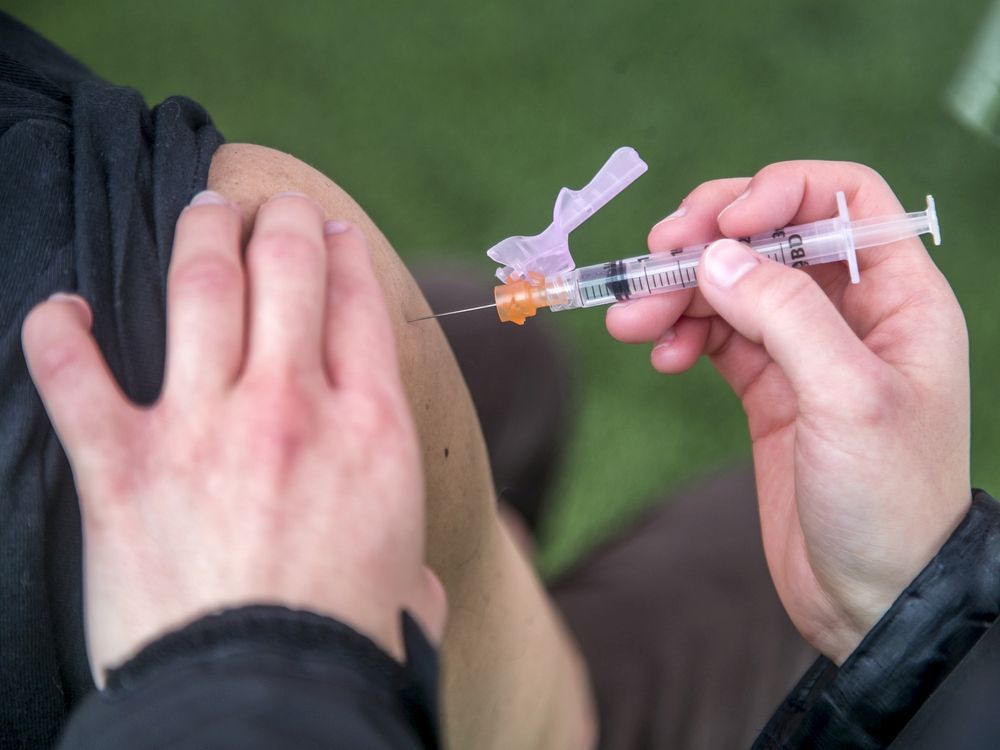Ottawa Public Health will let go most of its remaining COVID-19 staff by the end of the year as the province stops directly reimbursing most costs related to the pandemic.
OPH will continue offering vaccines to the most vulnerable, including long-term care residents and recent immigrants, but will wrap up broader COVID-19 efforts by the end of March.
The shift away from a large-scale COVID-19 public health response comes at a time when cases are surging across the province and wastewater levels are the highest they have been in more than a year. In Ottawa, there are currently 11 COVID-19 outbreaks in hospitals among a total of 38 ongoing outbreaks in institutional settings, including long-term care and retirement homes, in addition to hospitals. Hospitalizations across the province are on track to be higher this December than in any December since the pandemic began.
Meanwhile, uptake of an updated COVID-19 booster, designed to better protect against current variants, has been low, with just nine per cent of Ottawa residents having received a booster vaccine in the past six months, according to data from OPH. Ottawa initially had some of the highest vaccination rates in the province – with 88 per cent of residents over the age of 12 getting at least two doses. But, rates have declined dramatically with subsequent doses.
At its peak, in January 2022, OPH employed 4,400 staff for its dedicated COVID-19 response. Their salaries were reimbursed 100 per cent by the provincial government. Many of them were part of the immunization effort.
OPH has already dramatically decreased levels of dedicated COVID-19 staff to a current 1,100. The vast majority of those remaining will be let go by the end of the year, leaving 105 full-time positions to “support the final wrap up of COVID-19 operations,” according to the report accompanying Ottawa Public Health’s draft 2024 budget, which goes to the Board of Health for approval on Monday.
In the report, OPH says it will continue to offer COVID-19 immunization until the end of March of next year: “given the continued threat to populations facing greater barriers to immunization (e.g., people living in long-term care facilities, new immigrants and refugees).”
OPH says it is making the assumption that the Ontario government will offer “one-time” funding that will support the wrap up of dedicated COVID-19 programs by the end of March 2024. Otherwise, COVID-19 programs will come from the health unit’s already tight base budget. The health unit is funded by the city and the province and it is responsible for an array of programs and services, some of which were scaled down during the pandemic and others which have long been underfunded.
In its draft budget report, which was presented to the city’s Board of Health in November, Ottawa Public Health says its focus during 2023 was on sustaining the COVID-19 response, “ensuring people had the protection of COVID-19 booster vaccines” and restoring more core and essential public health programs and services.
This year’s budget reflects a return to the full scope of public health programs and services and wrapping up COVID-19 operations by the end of the first quarter of the year. OPH will maintain limited scale COVID immunization services in the winter to populations facing greater barriers to immunization.
OPH says it will be guided by its strategic objectives, which include bringing public health services and interventions closer to communities facing the greatest barriers – something begun in earnest during the pandemic. It will also focus on promoting mental health and substance use health, while reducing stigma, addressing climate change, influencing change in the “built, natural and social environments that promote health and wellbeing”, among other initiatives.
OPH is submitting a balanced budget based on a 2.5 per cent increase, but anticipates additional pressures, including due to the “diminishing capacity of the immunization team” after COVID-19 funding ends.
Ottawa Public Health says it is asking the province for one-time funding to support programs such as mental health and substance use as well as post-pandemic continuation of services through neighbourhood health and wellness hubs, such as immunization and chronic disease prevention.
OPH says it will continue to ask for enough funding to meet growing demand for its Healthy Babies, Healthy Children program which currently can not meet that demand.
In 2019, the province announced it was cutting its share of public health funding from 75 per cent to 70 per cent, with municipalities responsible for the remainder. Since then, it has restored the base funding as temporary mitigation effort. The province has also announced a one per cent annual increase in provincial funding to the cost-shared base budget and has encouraged some public health units to merge.
Last summer, the Ministry of Health said it would conduct a review of provincial base funding approaches for local public health agencies over the next two years. A new funding approach is expected to be implemented in 2026.

